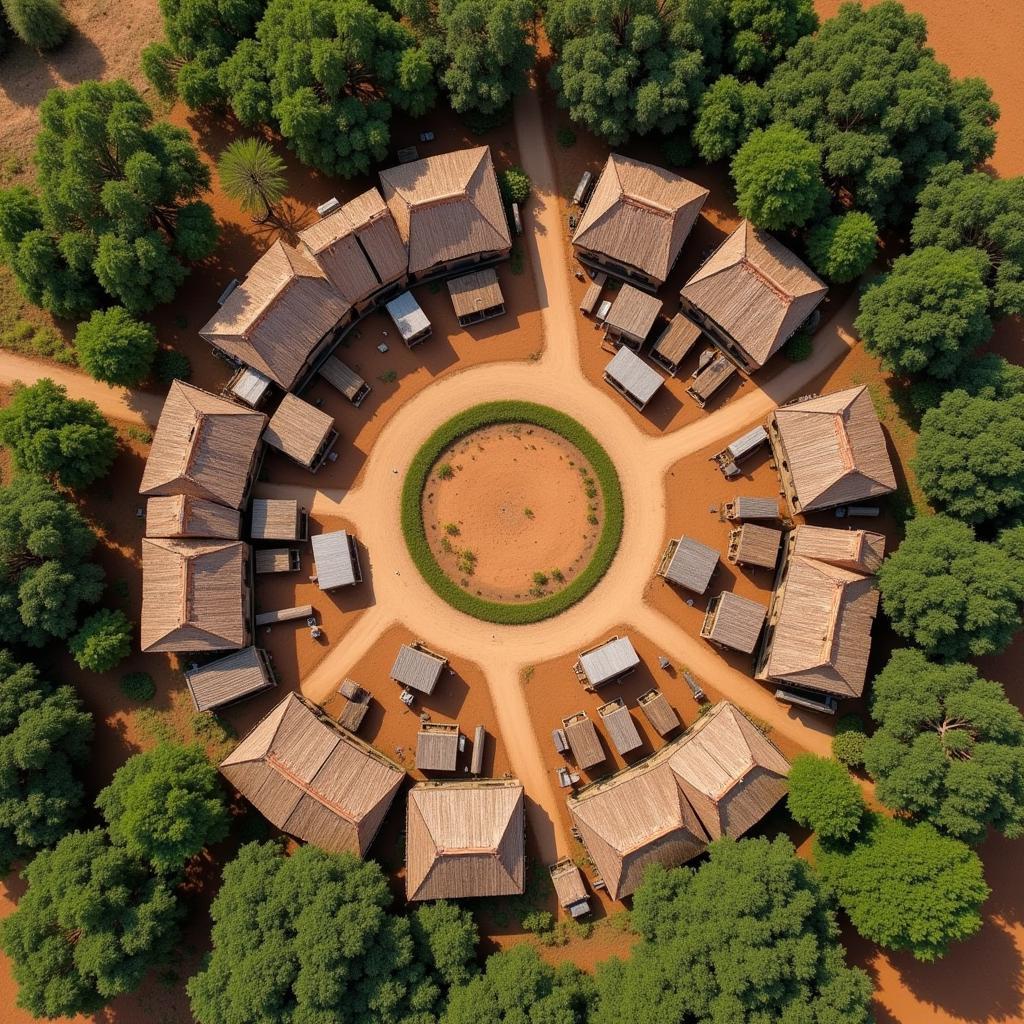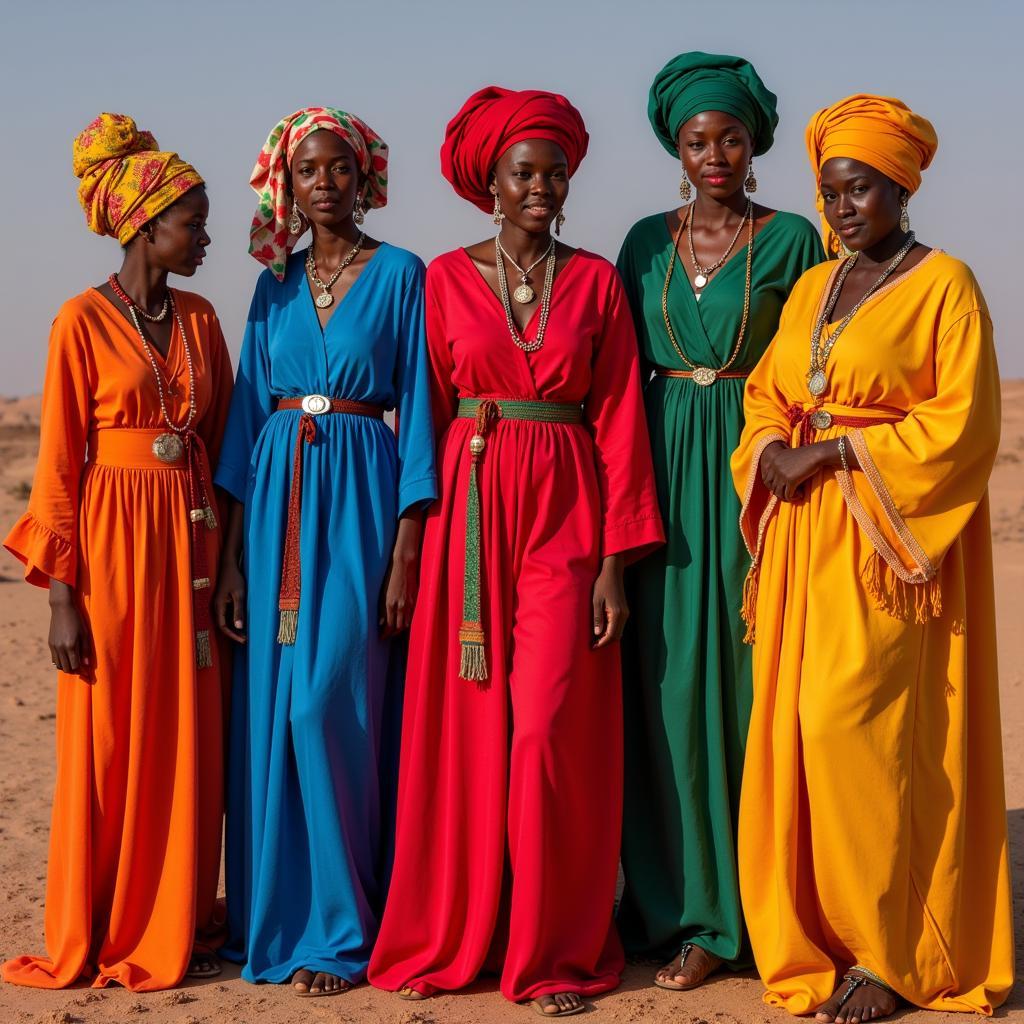Exploring African Fractals: A Journey into Art, Culture, and Mathematics
African Fractals Pdf offers a fascinating glimpse into the intricate patterns and designs deeply woven into the fabric of African culture. From ancient architecture to traditional textiles, these self-repeating patterns reveal a profound understanding of mathematics and a unique artistic sensibility. This article delves into the world of African fractals, exploring their significance, their presence in various art forms, and the resources available to understand this complex and beautiful subject.
The Significance of African Fractals
African fractals are more than just aesthetically pleasing designs; they represent a sophisticated understanding of mathematical principles embedded within cultural expression. These patterns, often found in everyday objects, reflect a worldview that sees interconnectedness and repetition as fundamental aspects of life. The concept of fractals, where a pattern repeats itself at different scales, is a powerful symbol of the cyclical nature of time, the interconnectedness of generations, and the harmony between humans and nature. These geometric designs are often imbued with symbolic meaning, representing everything from social status to spiritual beliefs.
African Fractals in Architecture and Design
Perhaps one of the most striking examples of African fractals can be seen in the architecture and village layouts of certain African communities. The circular villages of Southern Africa, for example, are often organized using fractal principles, with homes and communal spaces arranged in self-similar patterns. This reflects not only a practical approach to space utilization but also a deep understanding of social organization and communal living. Similarly, fractal patterns are incorporated into the design of individual dwellings, with intricate carvings and decorations reflecting the mathematical principles underlying the structure itself.  Fractal Architecture in African Villages
Fractal Architecture in African Villages
African Fractals in Art and Textiles
From the intricate designs woven into traditional textiles to the elaborate patterns adorning pottery and sculptures, African fractals are a testament to the continent’s rich artistic heritage. The use of fractals in art is not merely decorative; it often carries deep cultural and spiritual significance. For example, certain patterns might represent specific deities, ancestors, or natural forces. The repetitive nature of these designs can also be seen as a form of visual storytelling, passing down cultural knowledge and traditions through generations. These patterns are more than just decoration; they are a language, a code, a way of understanding and interacting with the world.
Understanding African Fractals through PDF Resources
For those seeking a deeper understanding of African fractals, “african fractals pdf” is a valuable search term. Numerous PDF documents and online resources offer detailed analyses of these patterns, exploring their mathematical foundations and their cultural significance. These resources often provide examples of fractals in different African cultures, highlighting the diversity and richness of this artistic tradition.
Why are African Fractals Important?
African fractals provide a unique lens through which to understand the intersection of mathematics, art, and culture. They challenge Western notions of art and mathematics as separate disciplines, demonstrating the profound interconnectedness of these fields in many African cultures. Studying these patterns not only enriches our understanding of African art and design but also expands our appreciation for the diversity of human thought and creativity. They showcase the ingenuity and sophistication of African knowledge systems.
Conclusion: The Enduring Legacy of African Fractals
African fractals pdf allows you to discover the complex beauty and deep cultural significance of these intricate patterns. From architecture to textiles, these self-repeating designs reflect a sophisticated understanding of mathematics and a profound connection to the natural world. Exploring African fractals offers a unique opportunity to appreciate the richness and diversity of African culture while gaining a deeper understanding of the mathematical principles that underpin our world. “African fractals pdf” is a valuable starting point for this journey of discovery.
FAQs about African Fractals
-
What is a fractal? A fractal is a complex geometric shape that exhibits self-similarity, meaning it looks the same at different scales.
-
Where can I find examples of African fractals? African fractals are found in various art forms, including textiles, architecture, pottery, and sculpture.
-
What is the cultural significance of African fractals? African fractals often carry deep symbolic meaning, representing spiritual beliefs, social status, and the interconnectedness of life.
-
Are there any resources available to learn more about African fractals? Yes, searching for “african fractals pdf” will lead you to numerous online resources and downloadable documents on the subject.
-
How do African fractals relate to mathematics? African fractals demonstrate a sophisticated understanding of mathematical principles, particularly the concept of self-similarity.
-
Why should I study African fractals? Studying African fractals offers a unique perspective on the intersection of art, culture, and mathematics, challenging Western notions of these fields as separate entities.
-
What is the best way to appreciate African fractals? By exploring different examples of African art and architecture and learning about the cultural context in which these patterns were created.
For further assistance, contact us at +255768904061, email [email protected], or visit us in Mbarali DC Mawindi, Kangaga, Tanzania. Our customer service team is available 24/7. You may also want to explore other articles on our website about African art, culture, and history.


